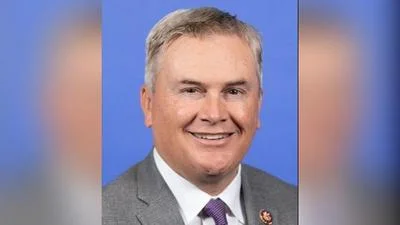Washington, D.C. -Rep. Stephen F. Lynch, the Chairman of the Subcommittee on National Security, issued the following statement after the Subcommittee held a briefing to examine the coronavirus outbreak in sub-Saharan Africa and discuss implications for international security.
“While we struggle to come to grips with the impact of the Coronavirus pandemic in our own country - the spread of disease in sub-Saharan Africa looms as the next great global challenge. Currently there are more Intensive Care Units and ventilators in New York City than there are on the entire continent of Africa with a population of 1.3 billion souls.
“Widespread extreme poverty, fragile public health services and armed conflict in Africa are likely to exacerbate the humanitarian and socioeconomic impact of the coronavirus, causing dangerous consequences for regional stability and international security," Chairman Lynch said. “This global health crisis requires a global response, and the United States must play a leadership role by ensuring that frontline aid workers receive the medical supplies and personal protective equipment they need as soon as possible to prevent societal collapse and catastrophic suffering. I am deeply grateful to representatives from CARE International, International Relief Commission and Save the Children for their input and for the lifesaving humanitarian work their organizations are doing in fragile states and conflict zones around the world."
The Subcommittee was briefed by:
* Bob Kitchen, Vice President of Emergencies and Humanitarian Action, International Rescue Committee (IRC);
* Claudine Awute, West Africa Regional Director, and other representatives from CARE International; and
* Kijala Shako, Head of Advocacy, Campaigns, Communication, and Media for East and Southern Africa, Save the Children.
Below are highlights from the briefing:
* Additional Resources Desperately Needed: IRC Vice President Kitchen explained that while the $2.2 billion appropriated in previous supplemental legislation is critically important, the United Nations (UN) Global Humanitarian Response Plan for COVID-19 has more than tripled since its first appeal, and the UN Office for the Coordination of Humanitarian Affairs estimates $90 billion may be required for the global humanitarian coronavirus response.
* Bureaucratic Delays Jeopardizing Humanitarian Response: Mr. Kitchen told Committee Members that humanitarian organizations are experiencing “long delays" getting assistance to frontline aid workers. Given the proven, historical capability of the U.S. Agency for International Development (USAID) and its Office of Foreign Disaster Assistance to respond quickly in previous emergencies, he implored Congress to “help empower USAID colleagues to do what they do best and break through the bureaucratic morass quickly." Ms. Kijala Shako also told Subcommittee Members that frontline workers are still awaiting clarity from USAID about whether they can use grant funding to purchase personal protective equipment.
* Women and Children Especially Vulnerable to Coronavirus: Ms. Shako argued that with only one doctor per 5,000 people in Africa, a spike of coronavirus cases would come at the expense of children’s health by disrupting nutrition, immunizations, and other critical health services. The pandemic will also likely lead to a deterioration of mental health and psychosocial well-being of children and communities across Africa and has also led to widespread school closures. CARE International also emphasized that while men may be more susceptible to the coronavirus, women and girls more often serve as frontline healthcare providers and are at greater risk from the resulting social and economic effects.
* Travel Restrictions Preventing Distribution of Aid: Ms. Shako told Subcommittee Members, “This is not only a health crisis, but also a hunger crisis on the continent." Mr. Kitchen also advocated for humanitarian exceptions to all COVID-19 travel restrictions to ensure that personnel, goods, and resources can be transported and delivered to where they are needed.





